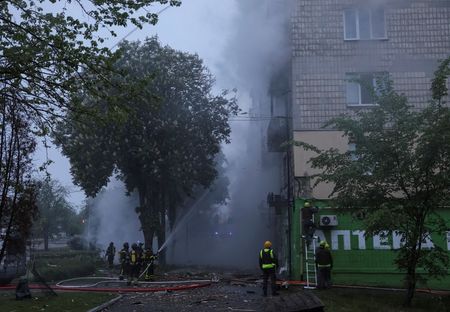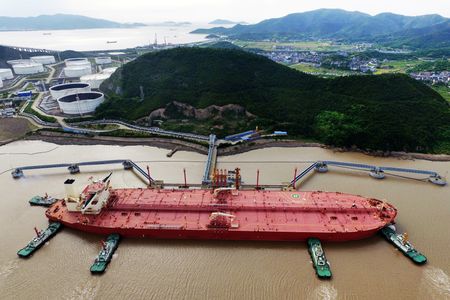By Robert Harvey
LONDON (Reuters) -Oil and gas producer Harbour Energy is set to cut 250 jobs, approximately a quarter of the workforce at its UK unit based in Aberdeen, the company said in a statement on Wednesday.
Harbour, the largest British North Sea oil and gas producer, said the cuts were necessary because of lower investment as a result of the UK government’s policies towards the North Sea fossil fuel industry.
Harbour’s cut is the latest blow for Scotland’s oil and gas industry. Last week, UK-Chinese joint venture Petroineos confirmed the end of crude oil processing at the century-old Grangemouth Refinery as it transitions to a fuels import terminal – a move that will cost 400 jobs.
“The review is unfortunately necessary to align staffing levels with lower levels of investment, due mainly to the Government’s ongoing punitive fiscal position and a challenging regulatory environment,” said Scott Barr, managing director of the firm’s UK business.
Harbour, which fell to a loss of 93 million pounds ($124.3 million) in 2024 from a net profit of 45 million pounds in 2023, has previously urged the UK government to reform its windfall tax before current levies run out in 2030.
The UK government increased its windfall tax on North Sea oil and gas producers to 38% from 35% last October, making the headline tax on the sector one of the highest in the world at 78%.
It wants to use the revenue to raise funds for renewable projects, but since the introduction of the Energy Profits Levy, North Sea oil and gas producers have sold assets, merged operations and sought to diversify elsewhere.
“The Government has reformed the Energy Profits Levy to support investment and give industry certainty and stability,” a government spokesperson told Reuters.
“Our thoughts are with any workers affected by this commercial decision, and we will do everything in our power to support workers and communities,” the spokesperson said.
Harbour is also reviewing the resources required for its Viking carbon capture and storage project, Barr said, adding that progress has been hindered by delays to the government’s Track-2 process.
Track-2 aims to develop two new carbon capture usage and storage clusters in the UK by 2030, but the projects included in the process, of which Harbour’s Viking is one, are still awaiting a decision on government funding, a company spokesperson said.
“We must take these difficult steps in response to the challenges presented by the current external environment,” Barr said.
(Reporting by Robert HarveyEditing by Tomasz Janowski and Ewan Harwood)








